Interview: Darius de Haas And Miranda Hoffner of DAY DREAM: VARIATIONS ON STRAYHORN at Kaplan Penthouse
"The more we can exercise compassion and kindness, and empathy, I think that is key." -- Darius de Haas
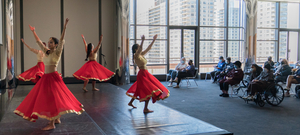
People everywhere are living with dementia, more people than, perhaps one might suspect... until one joins the club. It's a difficult disease with which to live, either as a patient or a caregiver. One of the things that happens when someone has dementia is they lose access to the arts. Thanks to an exceptional program through Lincoln Center called LINCOLN CENTER MOMENTS, people living with dementia and their caregivers are being provided with free access to the arts, in programs happening in-person and over the internet.
One of the aspects of Lincoln Center Moments is a concert series that has been running throughout the year that will finish out its season on June 14th with a concert titled DAY DREAM: VARIATIONS ON STRAYHORN WITH Darius de Haas. Mr. de Haas will be presenting his much-lauded Strayhorn program twice, once at 11 am and once at 1 pm in the Kaplan Penthouse, with each concert being followed by a workshop facilitated by access educators and music therapists. These concerts designed especially to provide meaningful connection to the arts to those living with dementia and their caregivers are absolutely free and absolutely essential.
As the days near when Darius de Haas will take to the stage at the Kaplan Penthouse, Darius and Miranda Hoffner, head of the Lincoln Center Moments program, took time out of their day to chat with Broadway World about this important series, the program, and the benefit it provides to a group of people very much in need of the arts.
This interview has been edited for space and content.
Hi Miranda. Hi, Darius, we're here today, talking about your upcoming appearance at Lincoln Center Moments, and I hope you'll forgive me, Darius, if I do this, but I'm going to talk to Miranda first.
Darius: I can forgive you for that.
I'm a Southern boy, so ladies first.
Darius: Oh, okay, that's fine.
I want to start by talking about this program that I am ashamed to say I did not know about until Jenni wrote to me and asked if we could talk about this - I didn't even finish reading the email before I said yes because I saw the word dementia. A year ago, my mother was put into a memory care facility for dementia, so I immediately wanted to write this story. So, Miranda, will you please tell us about this program?
Miranda: Sure! The program has been around since 2016. It was a really special sort of nugget of an idea that's grown so much, and there's been some incredible work with folks with dementia in art museums, but there had never been anything to this scale in performing arts. I think we all, living in New York, probably are here because of the arts and how important it is in all of our lives. And as so many people are diagnosed with dementia, their dementia progresses, and their access to the arts gets so limited because so much of the way that we consume art is probably going somewhere crowded at night. It probably costs some money. It's probably long. You have to be quiet when you're there. There are some social protocols that are there, and we know that, as people have dementia, some of those just don't align with their lives anymore. We also know that a lot of the ways that we connect with each other is through the arts. We've heard from couples that come to our program or children and their parents that come to the program and say, "I see my spouse, loved one, parent really light up. I saw who they are again, in these moments," which is so incredibly special, and that's exactly what we want. We deeply believe at Lincoln Center that everyone should have access to the arts, so that means that we break down barriers. We create new things, we create experiences where people can see themselves and see each other together again.
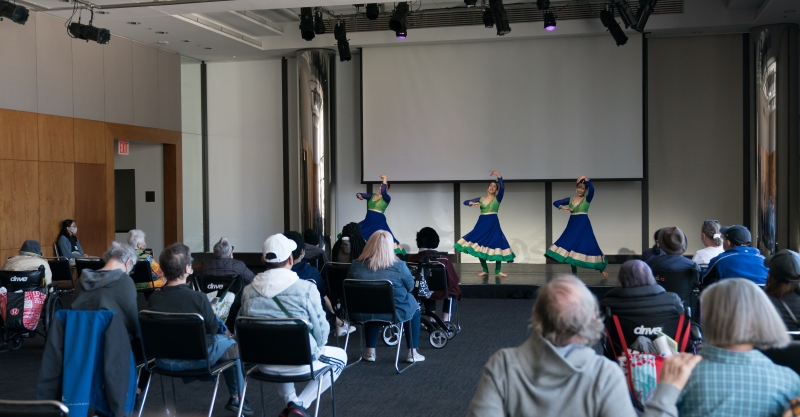
Darius, did you know about this program? It's my understanding that you are caring for your father, who has dementia.
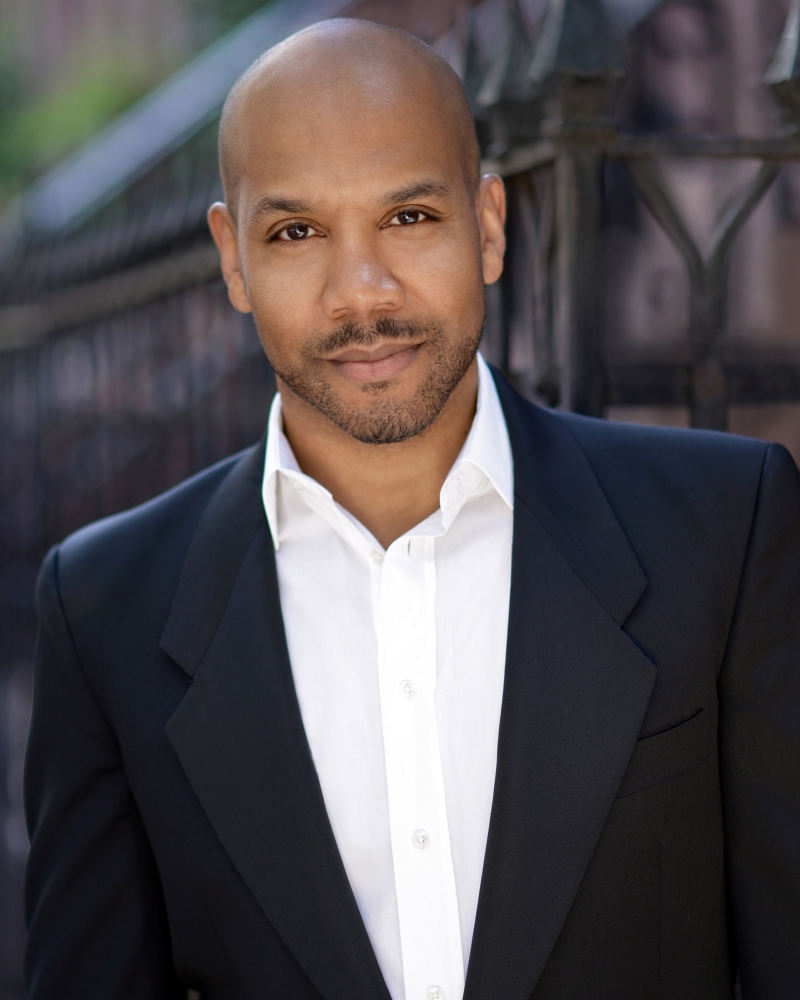 Darius: Yes, both my mother and father and my uncle actually are all at the Actor's Fund home and my father does have dementia.
Darius: Yes, both my mother and father and my uncle actually are all at the Actor's Fund home and my father does have dementia.
So, did you know about this program before you joined the unfortunate club of people who have loved ones with dementia or did you find out about it afterward?
Darius: I knew Lincoln Center Moments in a general sense but I didn't know the specifics of it. I had heard of it and I had seen it advertised because, when I'm in the area, I walk by and I always try to see what's happening at Lincoln Center, so I would see Lincoln Center Moments and its calendar. They work, in part, with CaringKind, which is a wonderful organization, which I got familiar with last year when I released a song with their support. So that got me a little bit more familiar with Lincoln Center Moments.
And on the 14th you'll be doing a program of ...
Darius: Of Billy Strayhorn music.
When you decided to participate in this season of performances, what is it about Strayhorn that made you think that this is the perfect program to present for this series?
Darius: Well, for me, it's a full-circle moment on many ends. You know, we've talked about the dementia connection with my father, and, also, I call myself a Lincoln Center baby; I've done many shows for Lincoln Center over the years, whether it was at the Vivian Beaumont or for the Lincoln Center Songbook Series. And I was brought to Lincoln Center Moments by John Nakagawa, who presented me at the Lincoln Center Songbook Series a little over 20 years ago. The first concert I presented for their Songbook Series was a concert of Billy Strayhorn's music. That is what launched my concert career - I had done cabarets up to that point, but Billy Strayhorn was what really kind of put me on a more known platform. So it's really special on many levels to come back around, all these years later, back to the same performing space in which I premiered the Billy Strayhorn concert; we're doing this in the Kaplan Penthouse on the 14th. That's where I premiered it 20-plus years ago. It was a no-brainer. The fact that they asked for the Strayhorn program, there was no hesitation
Miranda. How do you do the programming when you are putting together a season?
Miranda: We are so lucky to be at Lincoln Center and have access to remarkable artists like Darius, so we're able to bring together constituents from all over campus. Just last week we had a gospel and spiritual show with Jazz at Lincoln Center that was remarkable. We're working with the Met Opera Guild in two weeks to do a virtual performance around the Rusalka show. So we're able to really program from a lot of different angles. What really resonates with our participants is things that have a lot of highs and lows emotionally; we know that many of our participants can no longer express themselves verbally, as they may have been able to in the past, but that those feelings, those emotions, really stay with them. And the way that you see feet tapping and big smiles on people's faces and clapping, often singing along, often people singing lyrics, that they have not been able to compose sentences for quite a while and are able to sing along with us. These moments are really remarkable. So we're really looking for artists that are patient and warm and kind, artists that are exemplary, that have incredibly high-quality art, people that are able to put shows together that have, again, a lot of highs and lows, in emotional tone, to their shows.
In recent years, there has been a lot of talk about how music is greatly effective when it comes to working with people who have dementia. Darius, is that something that you have found with your father?
Darius: Well, both my father and mother are in music - my father's a jazz bassist, so it was a natural thing. And as his cognitive response has diminished over time, he still very much responds to music and can still - probably up until very recently, maybe up until early this year... because he's not as verbal as he was - could say, "Oh, this is so-and-so playing." Because he played with some of the greats, he played with Chet Baker and Blossom Dearie and Peter, Paul, and Mary - he was their bassist for a while. So I grew up in a world where music was it, music was the thing in my household, on both sides of my family. It is one of those things that we hold onto and that he, can still respond to. I'm very proud of that. In fact, one of his last ventures out before he just couldn't venture out anymore was to Lincoln Center to Dizzy's Club to see Roy Haynes, who he worked with many years ago and recorded an album with.
You must be very proud to have such special parents.
Darius: I am. I'm very, very proud and it's been very challenging because the thing about dementia is it doesn't have a set sort of rate of how the person affected by it will go away from us. It really is a very personal thing. It is what really has been the greatest challenge, and, I guess, in a way, one of the biggest blessings, in terms of what my chosen field is and how that sustains me, and how I can continue the legacy that my parents have put out there.
It's my understanding that you are the primary caregiver for your father right now.
Darius: It's myself and my sister, because of logistics - I'm talking to you from New Jersey, where I just moved, lock, stock, and barrel, not too far outside of New York. I had my parents living here up until just before we shut down from the pandemic two and a half years ago, so I moved them into the home in January of 2020. And of course, we shut down in March 2020. So, just logistically, I ended up doing a lot but my older sister, Aisha... we've both been carrying the load.
It's a beautiful thing that you're doing and it's a blessing to get to be there for them and for yourself at this time. One of the things that I discovered when they told me my mother had dementia - you're not really aware of how prevalent it is until you say, "I have a family member with dementia," and all of a sudden everyone that you know who has a loved one, who's going through this, or who's been through this, sends support, and suddenly you realize it's everywhere. We all have to hold each other up.
Darius: I think you bring up a very salient point there. It's one of those things that, the more we can make it known, to elevate it, to let people know that they're not alone, and particularly in this time, being in this pandemic; of course, it was horrible and very challenging, but it did give us a moment to pause and to really look at where we were at. I was extremely fortunate, I cannot stress that enough, just the timing alone - I cannot tell you how fortunate I was, but even before that, to shed a light on the caregivers as well, because we all have varying rates of resources. We have varying rates of people that we connect with, and varying rates of assistance, financially. I was walking my dogs just prior to this interview and I saw a lady doing her garden. She had two elderly people with her, I was assuming it was her parents, in wheelchairs, just trying to get a little sunlight - it really sheds a light: we are all trying to do the best we can, and the more we can exercise compassion and kindness, and empathy, I think that is key. That's why programs like Lincoln Center Moments, where this extension of Lincoln Center has given itself over to how do we go further in connecting with audiences and not just making it about subscriptions but really trying to really connect with all people, people who would not otherwise have that opportunity to enjoy an evening of dance or music: it's so important.
Miranda, the program has gone virtual as well, hasn't it? You're able to reach more people.
Miranda: A lot more people. We're seeing people zoom in from California and New Orleans, all over the country, which is really important because access to the arts is so varied, depending on where you live, so that's really important to us. We, really appreciate that, and it gives us a chance to try new art forms; we could never scale on opera in the Kaplan Penthouse for one day, for an hour-long show, so we're able to experiment with huge orchestral recorded pieces, much larger and elaborate sets. I think that that's been really fun, but it was certainly a learning curve to figure out how to reach people through zoom. I think we all had to learn that two years ago, but especially for folks with dementia, we did not want it to feel like you're watching TV. We wanted it to be interactive. We wanted people to feel acknowledged. We wanted our educators, and facilitators to call on individuals and form relationships. It took a while for us to sort of cement it. I'm so proud of the work that we've done.
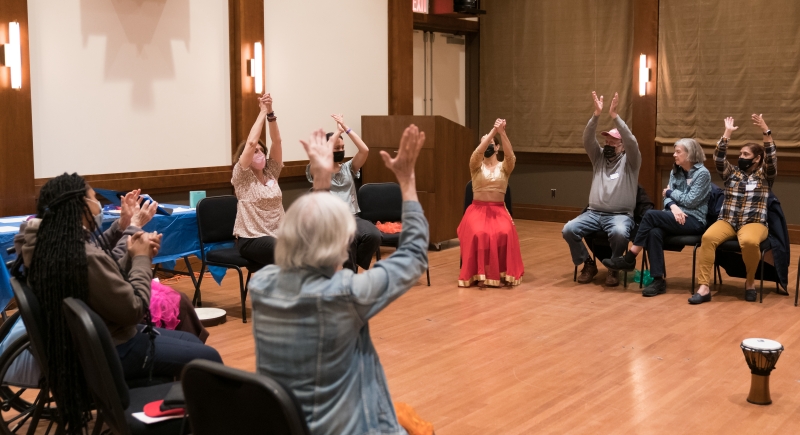
You mentioned the educators: there are workshops that go along with the programs, I think that there's a workshop after the concert on the 14th, isn't there?
Miranda: Yes.
Put a picture in my head of what the workshop looks like.
Miranda: What we heard over and over again was that people need a chance to cement the artistic experience for them. A lot of us go to a show and we want to talk about it right afterward, with the people we love, we want to think about it and re-experience it; for folks with dementia, we found that it was incredibly helpful to get together in small groups, to have social interaction and connection. We hired a team of music therapists to figure out how to draw out emotion and draw out experiences from our participants through music. We always have an art-making component to it, for folks that are more interested in visual art and expression in that way, and we also always have a really rich discussion, which is important, because we want to treat all of our participants like adults in the room. They want to learn new things, they want to share their experiences. The workshops: typically about half of the participants go in one room, half in the other. So it's a group of about 20 people, a mixture of caregivers and folks with dementia. We start with a discussion of the piece, maybe we replay some of the music or show some images and elicit people's responses. We make sure to say everyone's name in the room and have a very simple sort of improv-style name game so that we're all getting to know each other and make those connections. Many of our participants see each other at the Met Museum one week and us the next week and MoMA the week after, so it's really fun to see the arts community get together. Then we make music together and it's always hinged on a focal point, on a guiding question, a theme that we're exploring in the piece, based on what we've learned from the artists. Then we close with a visual art-making experience.
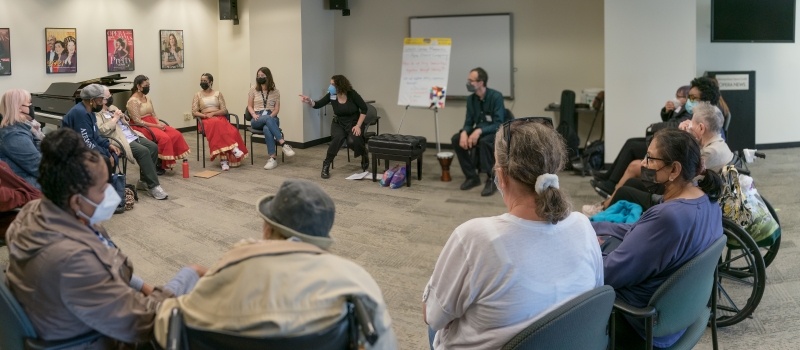
If you are doing the workshop with the live participants has it been facilitated for you to include the live streamers as well?
Miranda: We haven't mixed programs yet. I think that'd be so interesting to be able to do: right now we have a virtual slate of programs and an in-person slate of programs; we haven't mixed them together yet, but that would be super cool. I hope we can do it.
So while one workshop is happening in real time, another one's happening on the internet.
Miranda: Typically we have an in-person day, so it'll be an in-person performance, followed by a workshop. And then, the next week, we'll have a virtual program, so there'll be different content, different artists, and we work really hard to pick the artists that we think lend themselves best to virtual or in-person. We did a really cool program at the New York Public Library where they went into the archives and pulled together all of these pieces, then they were able to show them using the virtual format to show excerpts of things has been really successful. We've also had artists join us from all around the world, Lala Tamar joined us from Morocco and did a performance for us, people are joining us from their living room. That's been really cool to see as well. That's how we sort of lean into the virtual format.
Darius, while you've been caring for your family and coming out of the lockdown, I think the clubs have been active for about a year now. Broadway's been back for about a year. Have you been able to go out and work or will this show be one of your first?
Darius: It's been interesting... during the pandemic, it was weird - I actually worked quite a bit because I was working on the show The Marvelous Mrs. Maisel and we had all these live events planned, which all got canceled. It all ended up going virtual, so I ended up doing a lot of video. I did a lot of video work for them for "For Your Consideration" campaigns. I did the Billy Strayhorn show virtually for another organization. And this summer I will be doing "As You Like It" for the Delacorte Theater - that will be my first production since the shutdown.
What a nice way to come back.
Darius: I'm very excited. I'm very excited about that show.
Miranda, tell me how we at Broadway World can help make other people aware that you guys are out here.
Miranda: Oh, thank you so much for asking. We are here for New Yorkers. We're here for the arts community. We're here for the country. We really want people to come and be part of our community, we really hope that people register for upcoming programs, especially the performance we have with Darius, we do have some spaces left for it. We also want to hear from the community about what they need, if they're not able to come to us in person, if they need busing or have other kinds of barriers, we want to make sure that we can fill that need. We're so lucky to have really generous funding from the Mellon Foundation for this program. and we really have the intention of making the arts accessible. So we would love any help, for your readers to join us, come to the program, share the word. As you said, probably everyone knows of someone in their extended community or family that has dementia. We'd love for you to experience art with us and learn with us
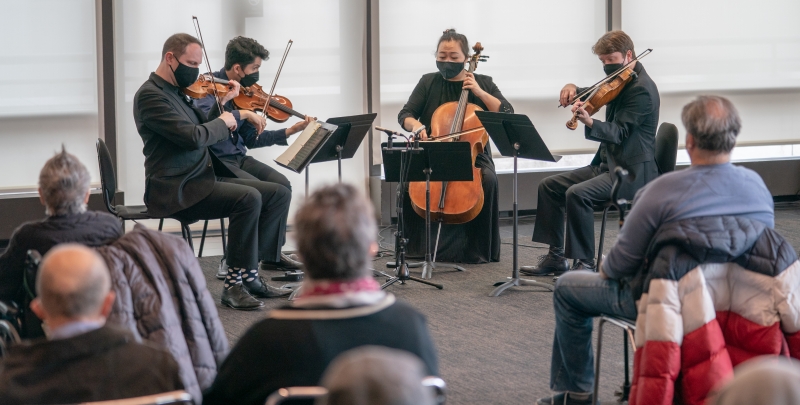
And it's worth saying, in case it hasn't been said yet, that these programs are free.
Miranda: Yes, totally free. Free of charge. And that's our intention to continue that.
And we love free.
Darius: Yes! We do.
I want to thank you both for chatting with us today about this really important program and the actor's home. They are such a great organization.
Darius: Thank you so much for having us. It is really an honor to work with Miranda and to talk about this program and I will support it to the ends of the earth.
Miranda: It's been such a pleasure to chat.
Learn more about Lincoln Center Moments and register for Day Dream: Variations On Strayhorn with Darius de Haas on the Lincoln Center website HERE.
Tuesday, June 14 at 11:00 am* and 1:00 pm*
Lincoln Center Moments
Kaplan Penthouse
Day Dream: Variations on Strayhorn with Darius de Haas
Day Dream is a concert celebrating the music of composer Billy Strayhorn. The music being performed is an Impressionistic meditation on themes of love, observations of the beauty of the natural world (such as flowers), and leaning into the human experience of wanting and yearning for connection.
*Followed by one hour workshop, facilitated by access educators and music therapists.
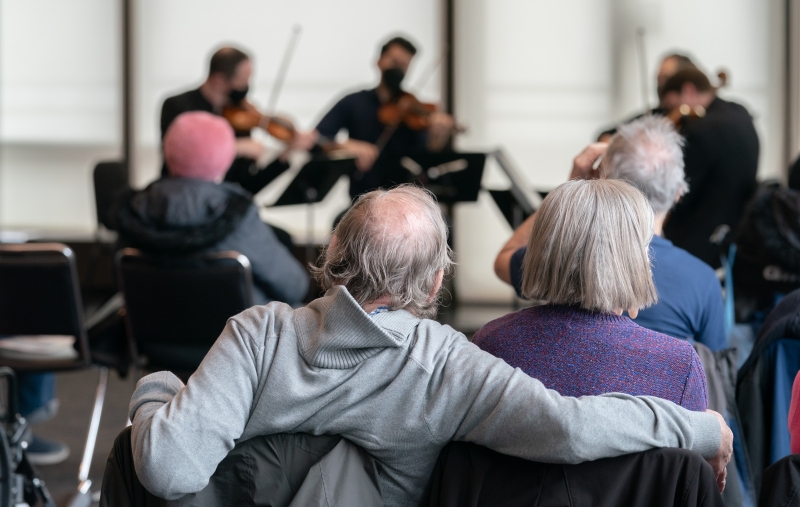
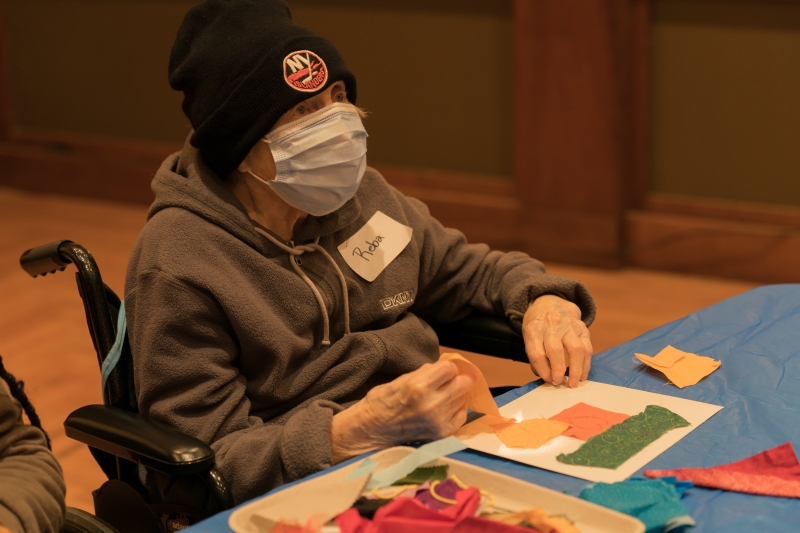
Comments

Videos

